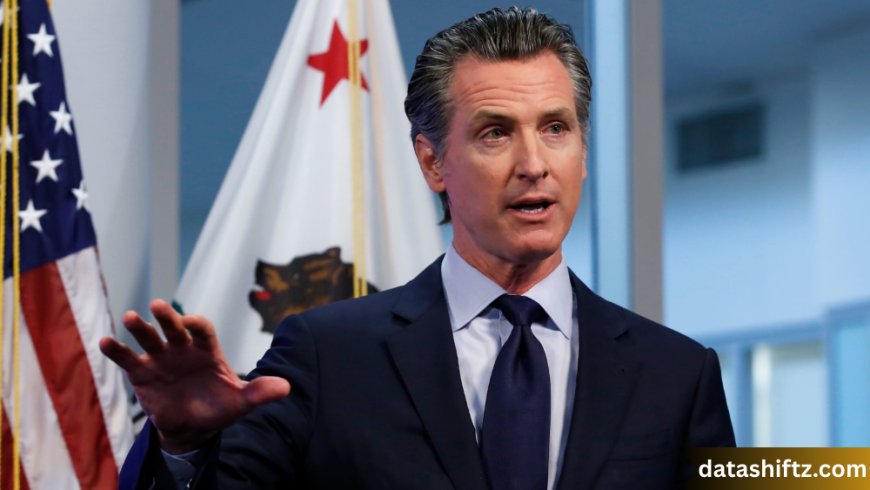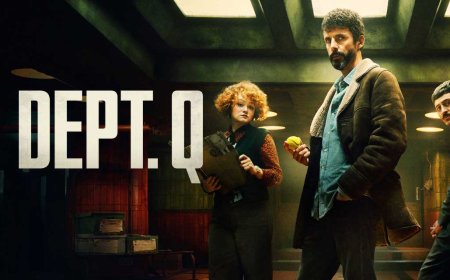Governor Newsom: Leadership, Legacy, and the Future of California

Introduction
Governor Gavin Newsom has emerged as one of the most visible and polarizing political figures in the United States. As the 40th Governor of California, he governs the most populous, diverse, and economically influential state in the nation. Known for his progressive policies, bold climate action, and high-profile pandemic leadership, Newsom has become a central figure in national Democratic politics and a frequent subject of speculation regarding future presidential ambitions.
This blog post explores the life, career, and political evolution of Governor Gavin Newsom, offering insights into his achievements, challenges, and how his leadership shapes not only California but national conversations on key issues like climate change, homelessness, education, and public health.
Early Life and Background
A Privileged but Complex Beginning
Gavin Christopher Newsom was born on October 10, 1967, in San Francisco, California. Raised in a prominent, politically connected family, he struggled with dyslexia, which shaped his communication style and educational experience.
Despite academic challenges, Newsom graduated from Santa Clara University in 1989 with a degree in political science. Before politics, he co-founded PlumpJack, a wine and hospitality business, which grew into a multi-million-dollar enterprise.
Quick Facts: Gavin Newsom
| Attribute | Detail |
|---|---|
| Full Name | Gavin Christopher Newsom |
| Date of Birth | October 10, 1967 |
| Birthplace | San Francisco, California |
| Education | B.A. in Political Science, Santa Clara Univ. |
| Political Party | Democratic |
| Current Office | 40th Governor of California |
| Term Start | January 7, 2019 |
| Previous Roles | Mayor of San Francisco, Lt. Governor |
| Spouse | Jennifer Siebel Newsom |
| Children | Four |
Political Career Overview
Rise Through Local Politics
Newsom entered politics in 1996, when he was appointed to the San Francisco Board of Supervisors by then-Mayor Willie Brown. His pro-business stance and appeal to younger voters helped him win elections with wide support.
In 2003, Newsom was elected Mayor of San Francisco, becoming the youngest person to hold the office in over a century. His time as mayor was marked by innovative and controversial policies, most notably his early support of same-sex marriage, years before federal legalization.
Career Milestones
| Year | Role | Notable Achievement |
|---|---|---|
| 1996 | SF Board of Supervisors | First elected role, appointed by Mayor Brown |
| 2003 | Mayor of San Francisco | Legalized same-sex marriage in SF |
| 2011 | Lieutenant Governor of CA | Focused on education and economic development |
| 2019 | Governor of California | COVID-19 response, wildfire management |
Key Policies and Legislative Actions
As governor, Newsom has pursued a progressive policy agenda aimed at reforming healthcare, education, climate, and housing.
Top Policy Areas
-
Climate Action and Environment
-
100% clean energy by 2045
-
Ban on new gas-powered car sales by 2035
-
-
Homelessness and Housing
-
Project Homekey to convert motels into shelters
-
$15 billion investment in affordable housing
-
-
Healthcare Access
-
Expanded Medi-Cal to undocumented residents
-
Prescription drug cost regulation through state contracts
-
-
Public Education
-
Universal Pre-K for all California children
-
Free community college expansion
-
-
Gun Control
-
Signed dozens of laws tightening gun restrictions
-
Promoted California as a “safe haven” state
-
Leadership During the COVID-19 Pandemic
Newsom gained national attention for his early and aggressive response to the COVID-19 pandemic in 2020. California was among the first states to issue stay-at-home orders.
Pandemic Response Timeline
| Date | Action Taken |
|---|---|
| March 2020 | Statewide stay-at-home order issued |
| April 2020 | Mask mandates introduced |
| Dec 2020 | Regional stay-at-home orders renewed |
| Feb 2021 | Vaccination programs expanded statewide |
| June 2021 | Economy fully re-opened |
While praised for saving lives early, he faced backlash for inconsistencies, especially after being photographed at The French Laundry restaurant during lockdown—a move that sparked criticism and contributed to the 2021 recall election.
The 2021 Recall Election
Amid rising frustrations over lockdowns, school closures, and homelessness, political opponents launched a successful petition to place a recall election on the ballot.
Recall Facts
| Date | September 14, 2021 |
|---|---|
| Reason | COVID-19 policies, homelessness, economy |
| Opponents | Larry Elder, Kevin Faulconer, Caitlyn Jenner |
| Result | Newsom retained office with 61.9% support |
Newsom used the recall as a platform to rally national Democratic support, raising over $70 million and gaining endorsements from President Joe Biden, Vice President Kamala Harris, and Senator Bernie Sanders.
Leadership Style and Public Image
Newsom is known for his polished communication style, progressive rhetoric, and media-savvy persona. He often uses executive orders, social media, and press conferences to shape narratives and lead from the front.
Leadership Strengths
-
Bold policy vision on climate, equity, and innovation
-
Charismatic and telegenic communicator
-
Resilient under pressure, especially during crises
-
Proactive policymaker—not afraid of controversial reforms
-
National ambition—often positioned as a future presidential contender
Criticisms and Controversies
While widely praised in progressive circles, Newsom has not been immune to criticism.
Top Criticisms
-
Hypocrisy Allegations
-
The French Laundry incident damaged his credibility during COVID restrictions
-
-
Homelessness Crisis
-
Despite large investments, California still has over 170,000 unhoused individuals
-
-
High Cost of Living
-
California’s housing affordability and income inequality remain unresolved
-
-
Wildfire Management
-
Critics argue state forest management has been under-resourced
-
-
Presidential Ambitions
-
Some say he focuses too much on national image, not state governance
-
Gavin Newsom and the National Spotlight
In recent years, Newsom has expanded his profile beyond California. He’s taken stands on national culture war issues, positioning California as a counterpoint to conservative states like Florida and Texas.
National Initiatives
| Initiative | Purpose |
|---|---|
| Reproductive Freedom Tour | Promoted CA as a sanctuary post-Roe |
| Book Bans Fight | Sent banned books to Florida libraries |
| Red vs. Blue Debate | Challenged Gov. Ron DeSantis on live TV |
| National Ad Campaigns | Promoted California values across U.S. |
These moves have intensified speculation that Newsom may run for president in the future, although he has denied plans for a 2024 or 2028 campaign.
Future Outlook: Will Newsom Run for President?
Gavin Newsom’s name is frequently floated as a future presidential contender, especially within progressive circles. Though he’s publicly loyal to President Biden, many believe he’s positioning himself for a post-Biden era.
Potential StrengthsDeep executive experience
-
Charisma and media skills
-
Strong donor network
-
Pro-labor and pro-environment policies
-
Broad appeal to both urban and suburban voters
However, his California record may face tough scrutiny in a national race, especially on homelessness, tax policy, and immigration.
Conclusion
Governor Gavin Newsom is one of the most influential—and controversial—political leaders of his generation. With a blend of bold progressivism, California swagger, and a flair for the dramatic, he has redefined what it means to lead in a deeply polarized era From his entrepreneurial roots and early same-sex marriage advocacy to managing wildfires, COVID-19, and culture war debates.





























